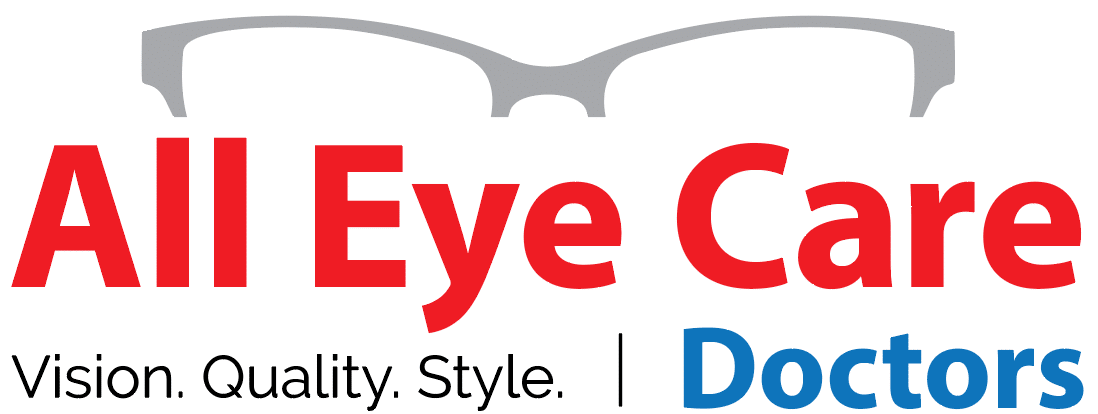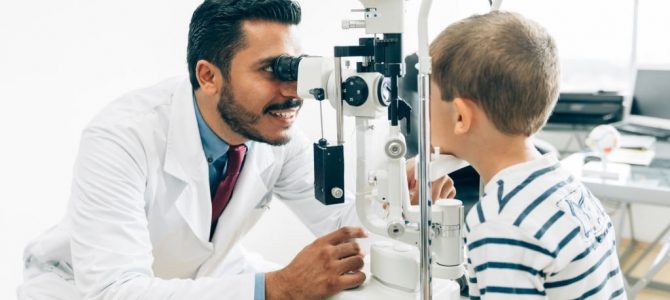Eye Center in Andalusia: Premier Solutions for Vision Treatment
Eye Center in Andalusia: Premier Solutions for Vision Treatment
Blog Article
Is Refractive Surgical Procedure Right for You? Factors to Think About for Better Eyecare
In the realm of eye care, the decision to go through refractive surgical treatment is a substantial one that requires thoughtful consideration. As individuals seek quality and flexibility from the constraints of corrective lenses, numerous elements come right into play when figuring out the viability of such a treatment. From the details of one's eye wellness to the intricacies of day-to-day behaviors and individual assumptions, each facet holds importance in the wider landscape of refractive surgery candidateship. By assessing these vital elements with treatment and accuracy, a more clear course towards educated decision-making arises.
Eye Health Examination
When taking into consideration refractive surgical treatment, a thorough eye health analysis is essential to analyze the viability of the procedure for every individual. eye center andalusia. This analysis involves a collection of tests and assessments performed by an eye treatment expert to identify the total health of the eyes, the presence of any kind of underlying conditions, and the stability of the refractive error
Throughout the analysis, different aspects are taken right into account, such as the individual's case history, present eye prescription, corneal thickness, pupil size, and tear movie high quality. These assessments aid to determine any contraindications to refractive surgery, such as corneal irregularities, cataracts, or unattended eye infections. Additionally, the evaluation helps to handle patient expectations pertaining to the potential outcomes of the surgical treatment based upon their distinct eye features.
Inevitably, the eye health and wellness examination is essential in making certain the safety and security and effectiveness of refractive surgical procedure, as it provides useful insights right into the person's eye wellness condition and aids establish one of the most suitable therapy alternatives for attaining ideal aesthetic outcomes. (eye center andalusia)
Lifestyle Evaluation
A complete way of living evaluation is essential in identifying the viability of refractive surgical procedure for an individual's visual adjustment needs. Way of living aspects such as occupation, hobbies, and everyday tasks play a critical duty in the decision-making process regarding refractive surgical treatment.
Moreover, way of life behaviors such as sports participation, outside tasks, or even skincare regimens can influence the recovery procedure and total success of refractive surgery. Individuals who engage in call sporting activities might need to take added precautions to protect their eyes during the recuperation duration. In addition, individuals with extensive sunlight direct exposure might call for additional post-operative care to stop complications. By carrying out an extensive way of living analysis, eye care specialists can tailor their referrals and treatment plans to meet the one-of-a-kind demands of each individual, inevitably resulting in improved aesthetic end results and fulfillment.
Assumption Alignment

Establishing practical expectations entails extensive pre-operative discussions between the client and the eye doctor. The cosmetic surgeon needs to transparently connect the possible dangers, advantages, and constraints of the treatment (eye center andalusia). Clients require to understand that while many people achieve 20/20 vision or far better complying with refractive surgical procedure, some might still call for glasses for certain tasks like analysis or driving at night. Taking care of these expectations helps prevent frustration and discontentment post-surgery, bring about an extra favorable overall experience for the person.
Threat Analysis

Factors that might enhance the danger of issues consist of age, certain clinical problems like autoimmune diseases, unpredictable vision prescription, thin corneas, and impractical patient assumptions. Furthermore, selecting a competent and knowledgeable specialist, following pre and post-operative treatment instructions carefully, and revealing any type of relevant case history can help reduce threats.
To reduce the possibility of complications, ophthalmologists carry out detailed pre-operative analyses to identify any contraindications to surgical treatment. They additionally discuss the prospective threats and advantages with individuals throughout the appointment process. By taking part in open communication and shared decision-making, both the individual and the eye doctor can interact to figure out if refractive surgical procedure is the ideal choice based upon individual threat profiles and wanted end results.
Examination Relevance
Thinking about the important function of informed decision-making in evaluating dangers and prospective difficulties in refractive surgical procedure, the assessment procedure holds significant relevance in directing individuals in the direction of optimum end results. During the assessment, the ophthalmologist assesses the individual's eye health, refractive errors, and total viability for surgery. This first assessment is important in figuring out one of the most suitable procedure for every individual, taking into consideration factors such as corneal thickness, pupil size, and existing eye conditions.
Furthermore, the appointment functions as a chance for patients to discuss their assumptions, issues, and any type of concerns they may have regarding the surgery. Clear interaction in between the doctor and the individual is vital to make certain realistic assumptions and a comprehensive understanding of the prospective threats and advantages included.
In addition, the examination enables the surgeon to discuss the various medical options offered, their respective results, and the post-operative treatment called for. This comprehensive discussion encourages patients to make knowledgeable choices regarding their eye care, causing far better complete use this link satisfaction and results post-surgery.
Verdict
Finally, people taking into consideration refractive surgical procedure should go through a comprehensive eye health analysis, assess their way of life habits, straighten their assumptions with potential results, evaluate the associated risks, and prioritize assessments with eye care professionals. These factors play an important role in determining the suitability of refractive surgical treatment for each individual, guaranteeing ideal end results and satisfaction with the treatment.
Individuals considering refractive surgery frequently have high assumptions regarding the results, anticipating ideal vision without the requirement for glasses or get in touch with lenses. While refractive surgical procedure can greatly boost vision and decrease reliance on visual aids, it is vital for people to comprehend that results might vary based on private variables such as the degree of refractive error, corneal thickness, and total eye health and wellness.
By engaging in open interaction and shared decision-making, both the ophthalmologist and the client can function with each other to figure out if refractive surgical procedure is the best selection based on individual risk accounts and desired end results.
Thinking about the crucial duty of notified decision-making in examining risks and potential problems in refractive surgical treatment, the examination procedure holds significant significance in leading people towards optimum end results. During the assessment, the ophthalmologist examines the individual's eye health and wellness, refractive mistakes, and general viability for surgical treatment.
Report this page